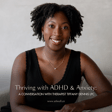
The Mental Break Down: More Than Just Trauma: Understanding C-PTSD
Welcome to the premiere episode of The Mental Break Down, a 5 minute weekly mental health mini-series by Sol Well, designed to raise awareness, spark reflection, and offer practical support—one topic at a time.
In honor of Mental Health Awareness Month, this week we’re diving into Complex Post-Traumatic Stress Disorder (C-PTSD) — a lesser-known but deeply impactful diagnosis that can shape how we feel about ourselves, relate to others, and navigate the world.
💬 We unpack:
- What C-PTSD is and how it differs from PTSD
- Signs and symptoms like emotional flashbacks and relationship struggles
- How trauma-informed care and proper diagnosis make a difference
- A grounding tool to support emotional regulation: The Safe Place Visualization
Whether you’re navigating trauma or supporting someone who is, this episode offers a gentle but informative breakdown to deepen your understanding.
Mentioned Resources & Citations
- VA National Center for PTSD: ptsd.va.gov
- NYU Scholars on C-PTSD: nyuscholars.nyu.edu
Disclaimer
This episode is for educational purposes only. For diagnosis, treatment, or mental health support, please consult a licensed mental health or primary care provider.




![Life after [baby] loss A conversation with Alishia Anderson image](https://media.zencastr.com/cdn-cgi/image/width=112,quality=85/image-files/61fb5028559b7100aee9f217/492cabf0-4479-488c-b19c-2873fe6bdce8.png)














